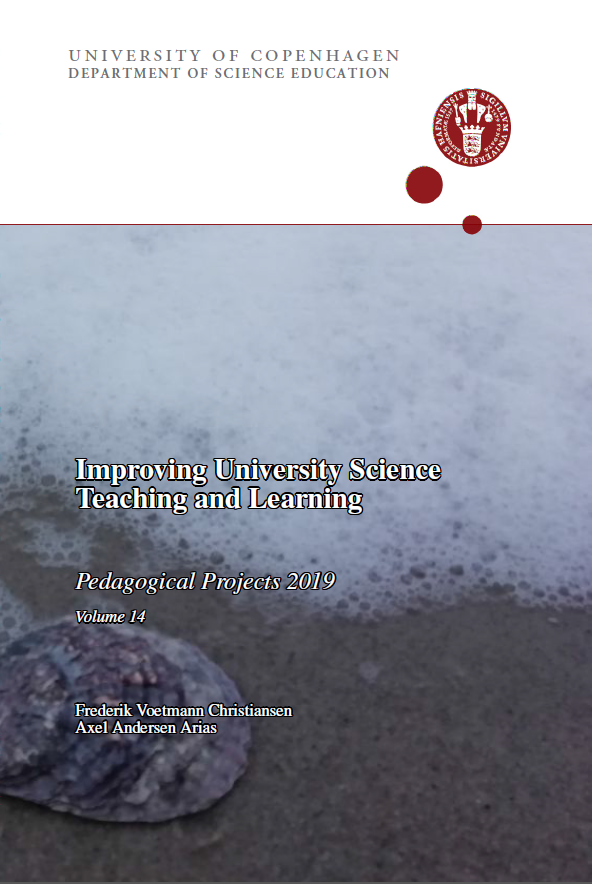Enhancing student research projects with new technologies
Nøgleord:
enhancing, research projects, new technology, supervision tool, data application, consistently, transferable skillsResumé
A critical component in supervising thesis students is helping them maintain focus on the final outcome and continue working consistently for the full project duration. However, it can be difficult for a supervisor to gather concrete data on the progress of a student throughout the project period. Poor outcomes can occur in the middle part of the project as initial excitement flags, complexity grows and the supervisor is typically busy with other tasks. I report here on a test of a coupled set-up of an integrated rich text, code, and data application, a web-based version control system, and cloud-based team collaboration tool, designed to improve consistency of overview of the progress of thesis students. The tools may also increase the rapidity and quality of communication and help maintain consistent supervision and focus for the student over the full project period. I used Jupyter Notebooks, Github, and Slack respectively as a supervision tool with a Master’s student over a full year. Quantitative data from these tools are used to analyse how well the monitoring set up worked. The technical set up works well. There is an initial investment cost for the student to learn the various tools and from the supervisor in ensuring the student gets used to using them consistently and correctly. However, the overall benefits appear to be significant in terms of the supervisor’s overview of the student’s progress, leading to potentially greater consistency of supervision. Secondary effects were also positive, with significant development of transferable skills such as software coding ability and team-working. Modifications were made to improve the use of the set up for the following year and the initial data on a student in the next year are provided.
Downloads
Publiceret
Citation/Eksport
Nummer
Sektion
Licens
Fra og med årgang 19 (2023) er artikler udgivet i IUSTL udgivet med Creative Commons Navngivelse –Ikke-kommerciel (by-nc) licens. Redaktionen kan godkende andre Creative Commons Licencer for enkelte artikler, hvis forfatteren har anmodet om det.
Artikler i årgangene 1-18 er ikke udgivet under Creative Commons licens. I disse udgivelser tilfalder alle rettigheder forfatteren. Det betyder, at læsere kan downloade, læse og linke til artiklerne, men de kan ikke genudgive artiklerne. Forfatterne kan uploade deres artikler i et institutionsrepositiry som led i en grøn open access politik.




